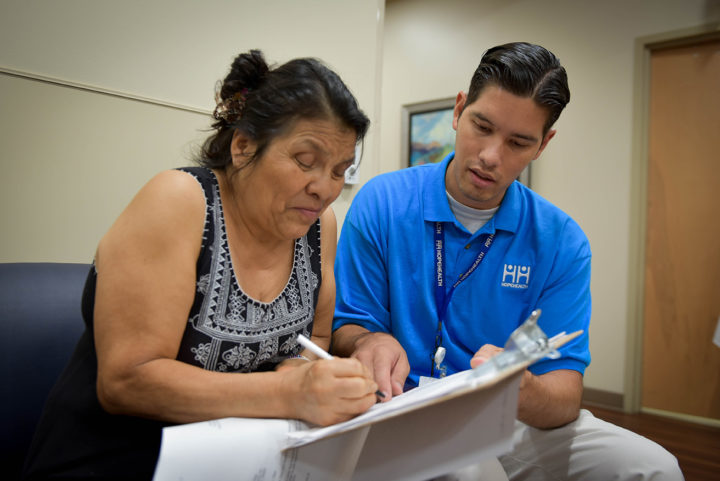Overcoming Health Care Barriers for Latino Communities

Across the nation health issues are impacting communities. From the dramatic increase in opioid addictions, to the media attention surrounding mental health, to the ongoing endemic of obesity and diabetes, health care accessibility to quality care is a concern for all.
For many communities, Federally Qualified Health Centers help open doors to essential primary care services and health care needs addressing these issues. These centers, such as HopeHealth, are not free clinics. They do, however, offer programs and sliding-scale fees to help bridge financial barriers to health care access and provide quality, equitable care regardless of ability to pay. Business owners, corporate CEOs, banking executives, migrant workers and the unemployed single parent are all examples of our customers who receive care at community health centers like HopeHealth.
Within the larger community, some populations face additional barriers to receiving timely health care. Language and cultural barriers, lack of access to preventive care, limited understanding of the health care system and lack of health insurance are some of the factors that can impact the health of such populations. In South Carolina, the Hispanic population increased 161 percent between 2000 and 2012 – the most rapid growth across all states. The majority of this growing community are young, working families. Therefore, early prenatal care, pediatric well-visits and chronic disease prevention are essential steps in keeping their families healthy. However, many of these working families rarely use the health care system except for childbirth and emergency services because of such barriers.

HopeHealth’s Latino Outreach Coordinator Gabriel Cardona (right) checks in with Jose Moises Lopez Sales at a farm in Summerton, SC.
Reaching Out
Programs and initiatives at community health centers directly respond to the needs in their local communities to bridge these barriers to care.
Initiatives like HopeHealth’s Latino Services tackle these problems proactively by focusing on a variety of health aspects in Latino communities. This service includes using bilingual interpreters within the health care system. These interpreters have become an essential and growing part of the HopeHealth team in Florence and Manning: they help provide clear communications between patients and providers by breaking down the language barriers that hinder appropriate care.
Bilingual community health workers provide culturally-relevant outreach, education, and access to care where Latinos frequent most such as tiendas, Hispanic churches, laundromats, and the fields and factories where some may work. They also help patients navigate the health care system; connect individuals to needed resources such as prenatal care, primary care, specialty clinics, Medicaid, WIC and more; and they help foster a health care environment that is approachable and accessible.
These initiatives stem from partnerships with organizations with a shared goal of creating a healthy South Carolina with healthy Latino communities. Such partnerships include: The Prevention Institute; The Movember Foundation; SC Thrive; SC Office of Rural Health; PASOs; Arnold School of Public Health, Latino Studies, at the University of South Carolina; and The Boys and Girls Club of the Pee Dee.